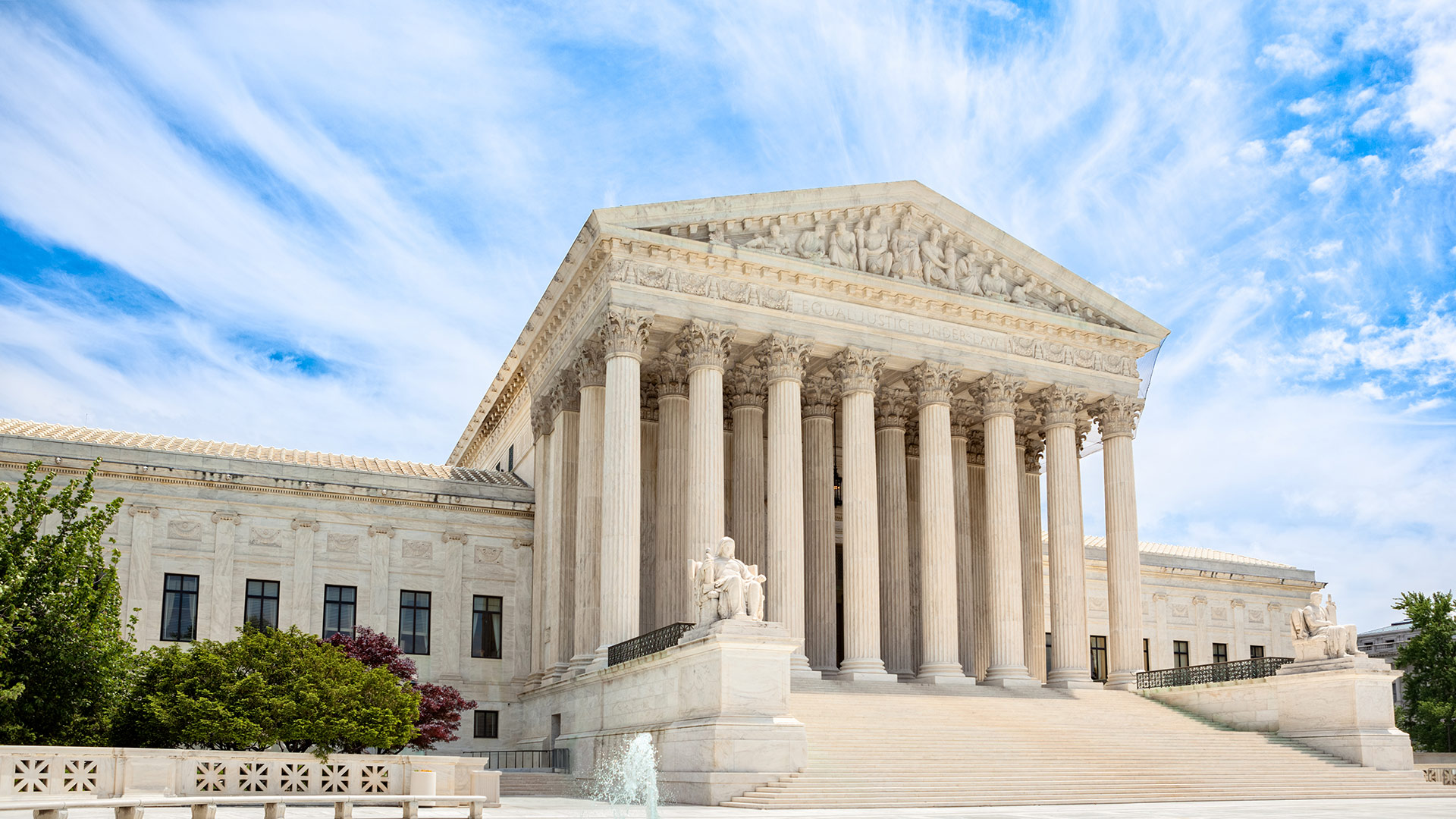On August 31, 2020, in a case that may prove to significantly weaken the investigatory and oversight powers of the US House of Representatives, the US Court of Appeals for the DC Circuit dismissed a House Judiciary Committee lawsuit seeking to enforce a subpoena against Donald McGahn, President Trump’s former White House counsel.
In Comm. on the Judiciary of United States House of Representatives v. McGahn, 19-5331, 2020 WL 5104869 (DC Cir. Aug. 31, 2020), a divided three-judge panel held that the Judiciary Committee lacked the ability to enforce its subpoena against McGahn in court because Congress has not passed a statute expressly giving the House authority to do so. In other words, absent further action from Congress, the House will have to rely only on its traditional contempt powers to compel compliance rather than the more direct path to obtaining enforcement of its subpoenas through the courts.
This change presents profound implications for congressional oversight, for members of the Executive Branch and private citizens alike.
Background
The McGahn case arose from a dispute over the House’s authority to compel testimony from White House officials. In April 2019, the House Judiciary Committee issued a subpoena to McGahn seeking his testimony in connection with the investigation into the Trump Campaign’s alleged ties to Russia. After President Trump directed McGahn not to comply with the subpoena on the grounds that he possessed “absolute testimonial immunity,” the Committee sued McGahn in federal court, seeking a judicial order directing him to comply with the subpoena.
In November 2019, the district court held that McGahn was legally required to appear before the Committee, 415 F. Supp. 3d 148, 214 (D.D.C. 2019), rejecting the Executive Branch’s absolute immunity argument. On appeal, a divided three-judge panel reversed the district court’s decision on the grounds that the court lacked jurisdiction. 951 F.3d 510 (DC Cir. 2020). In March 2020, the panel decision was vacated and the full DC Circuit agreed to rehear the case.
On August 7, 2020, the nine-judge panel sitting en banc ruled that the Committee had standing to enforce the subpoena against McGahn, 968 F.3d 755 (DC Cir. 2020), finding that the Committee’s injury was caused by McGahn’s refusal to comply with its subpoena and could be cured “only by judicial enforcement of the subpoena.” The case was remanded back to the original three-judge panel for further proceedings – leading to the most recent decision.
The August 31 panel decision
On remand, the three-judge panel dismissed the Committee’s lawsuit in a 2-1 decision, holding that the House could not bring an action to enforce its subpoenas in court absent a statute expressly authorizing such a suit. In essence, the Court found that the House has the power to request information through congressional subpoenas, but has no right to enforce those subpoenas through the normal course of judicial enforcement used in other subpoena contexts.
First, the Court held that the Committee could not sue to enforce its subpoena under Article I of the Constitution because there is no explicit language granting the House that power. According to the Court, not only has Congress failed to explicitly authorize the House to bring civil enforcement actions in court, it has also denied the House this right “twice over.” First, Congress passed a statute providing only the Senate—and not the House—with authority to enforce a subpoena in federal court. Further, Congress has expressly precluded civil enforcement actions involving Executive Branch assertions of "governmental privilege."
Because Congress has enacted “two separate statutory limitations on civil suits to enforce congressional subpoenas,” the Court declined to allow the Committee to bring a civil enforcement action under Article I. According to the Court, “[i]f Congress (rather than a single committee in a single chamber thereof) determines that its current mechanisms leave it unable to adequately enforce its subpoenas, it remains free to enact a statute that makes the House’s requests for information judicially enforceable.”
Second, the Court held that the Committee could not invoke the traditional power of courts in equity to enjoin “unlawful executive action.” The Court stated that it was barred from granting equitable relief that is otherwise prohibited by statute. Further, courts of equity have not traditionally granted injunctive relief against members of the Executive Branch related to interbranch information disputes.
The Court also rejected the Committee’s argument that the Declaratory Judgment Act provides a separate basis for its suit, holding that the Act does not provide its own cause of action. In other words, because Article I does not grant the House the right to enforce its congressional subpoenas in court, the Committee could not bring the suit based on the Act alone.
In her dissent, Judge Judith Rogers noted that the Supreme Court previously found that Congress’s investigative power includes the authority to compel testimony and enforce a subpoena in federal court. She argued that congressional power includes “not only a right to information but also a right to seek judicial enforcement of its subpoena.”
Implications
While McGahn involves a dispute between Congress and a former Executive Branch official, the logic of the decision has the potential to restrict the House’s ability to enforce its subpoenas not only against the Executive Branch, but against private parties as well. Rather than relying exclusively on separation-of-powers principles in support of its holding that the House lacks a cause of action to bring civil enforcement suits against the Executive Branch, the panel majority challenged the House’s ability to enforce its subpoenas in court more generally. Individuals and corporations faced with congressional subpoenas, therefore, should keep a close eye on McGahn, as the decision as it stands could implicate how the recipient of a House subpoena chooses to respond or resist.
Traditionally, Congress has utilized three methods of enforcement against non-compliant actors—civil enforcement, inherent contempt and prosecution under the criminal contempt statute. Before the McGahn decision, limited precedent from the Supreme Court and other federal courts, particularly the district court decision in Comm. on Judiciary of US House of Representatives v. Miers, 575 F. Supp. 2d 201 (D.D.C. 2008), suggested that the House has the ability to enforce subpoenas against both the Executive Branch and private parties in court. The panel majority’s holding in McGahn would take civil enforcement off the table, forcing the House to rely on its own contempt powers—rather than the courts’—to compel compliance with its subpoenas.
Of course, even without civil enforcement in its arsenal, the House could still utilize its own contempt powers to compel compliance. While contempt citations have the potential to be more damaging to parties than complying with a congressional subpoena, the extent to which the House can effectively deploy its contempt powers in routine enforcement cases is far less certain. Under its traditional power of inherent contempt, for instance, the House could try contemnors at the bar and imprison or fine them for noncompliance. While Congress’s inherent contempt power has been in disuse for almost 100 years, several House Democrats have suggested amending the House rules to revive inherent contempt and levy a US$25,000 penalty for noncompliance in response to McGahn. Even if Congress is able to successfully resuscitate its inherent contempt power, it is unclear whether inherent contempt will be an effective enforcement mechanism in light of Congress’s increased legislative responsibilities. It seems unlikely, for instance, that modern Congress will have the time or resources to bring a full-scale congressional trial each time a party fails to sufficiently comply with a subpoena.
As an alternative, the House could threaten non-compliant witnesses with criminal prosecution under 2 USC § 192, the criminal contempt statute. Where the House rules that an act of criminal contempt has occurred, it can refer the matter to the Department of Justice (DOJ) for criminal prosecution. Although the threat of being prosecuted for criminal contempt of Congress is very serious, this option is subject to several practical limitations. Unlike a civil contempt holding, a party charged with criminal contempt may not be able to purge themselves of criminal liability even in the event they decide to subsequently comply with a subpoena. As a result, criminal contempt charges may not coerce parties to comply at all, limiting the effectiveness of criminal sanctions. Moreover, whether to prosecute a party for contempt of Congress lies at the discretion of DOJ. As seen with criminal contempt actions against Executive Branch officials, DOJ may decide not to prosecute certain individuals or companies even where Congress demands it.
In light of the significant implications of McGahn on the House’s power of inquiry, it is unlikely that the panel majority’s decision will be the final word on the matter. House Democrats have petitioned the full DC Circuit to rehear the case in favor of enforcing the subpoena against McGahn, stating that the three-judge panel’s opinion “hamstrung the House’s constitutional right to obtain information.” It bears watching whether the DC Circuit will decide once again to rehear the case en banc, and, if so, whether the court will uphold the panel’s decision.
This article was drafted by Norton Rose Fulbright Austin associate Ashley Kuempel, who is licensed in the state of New York and supervised by Keith Rosen and Sam Ramer.





